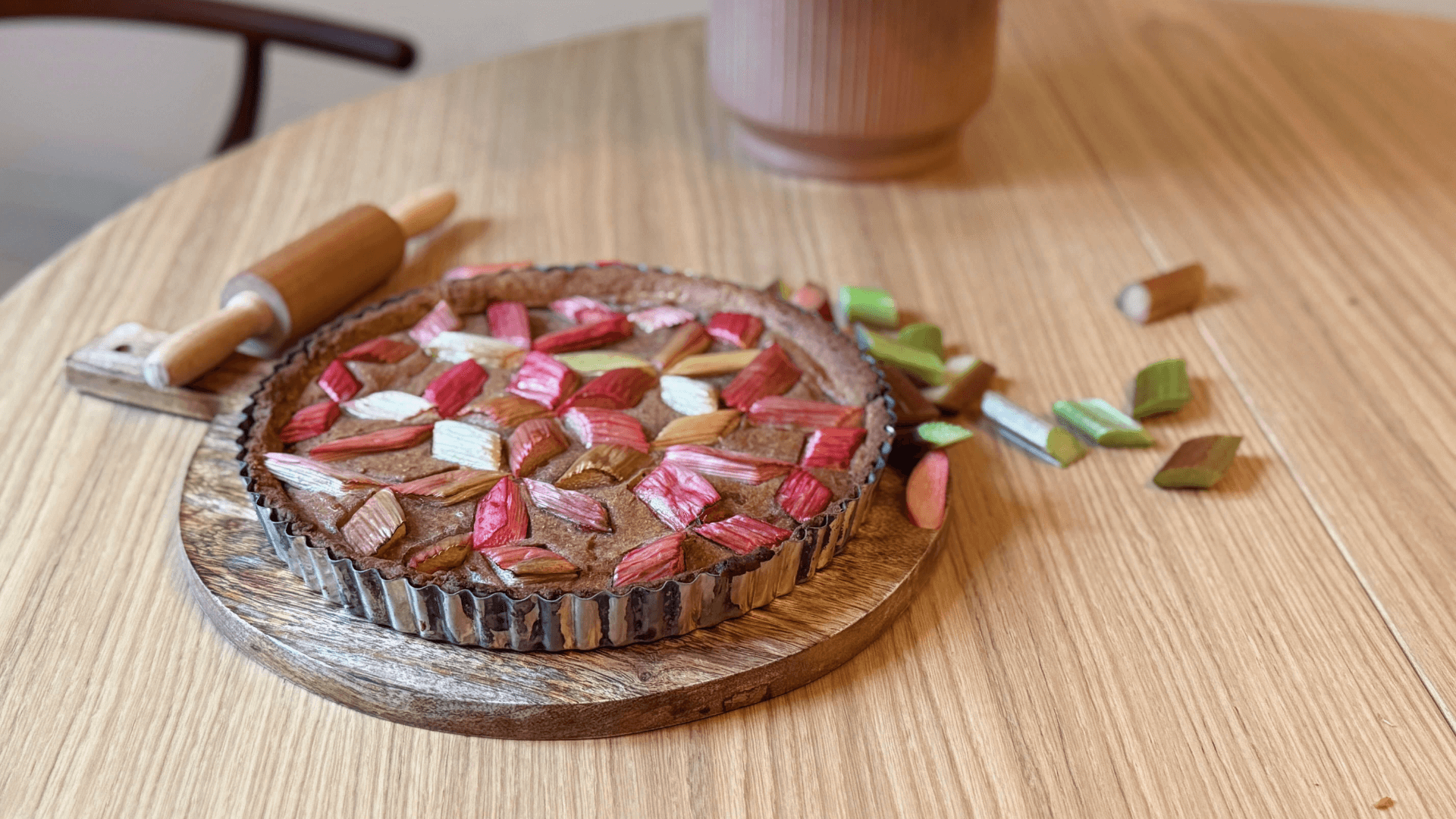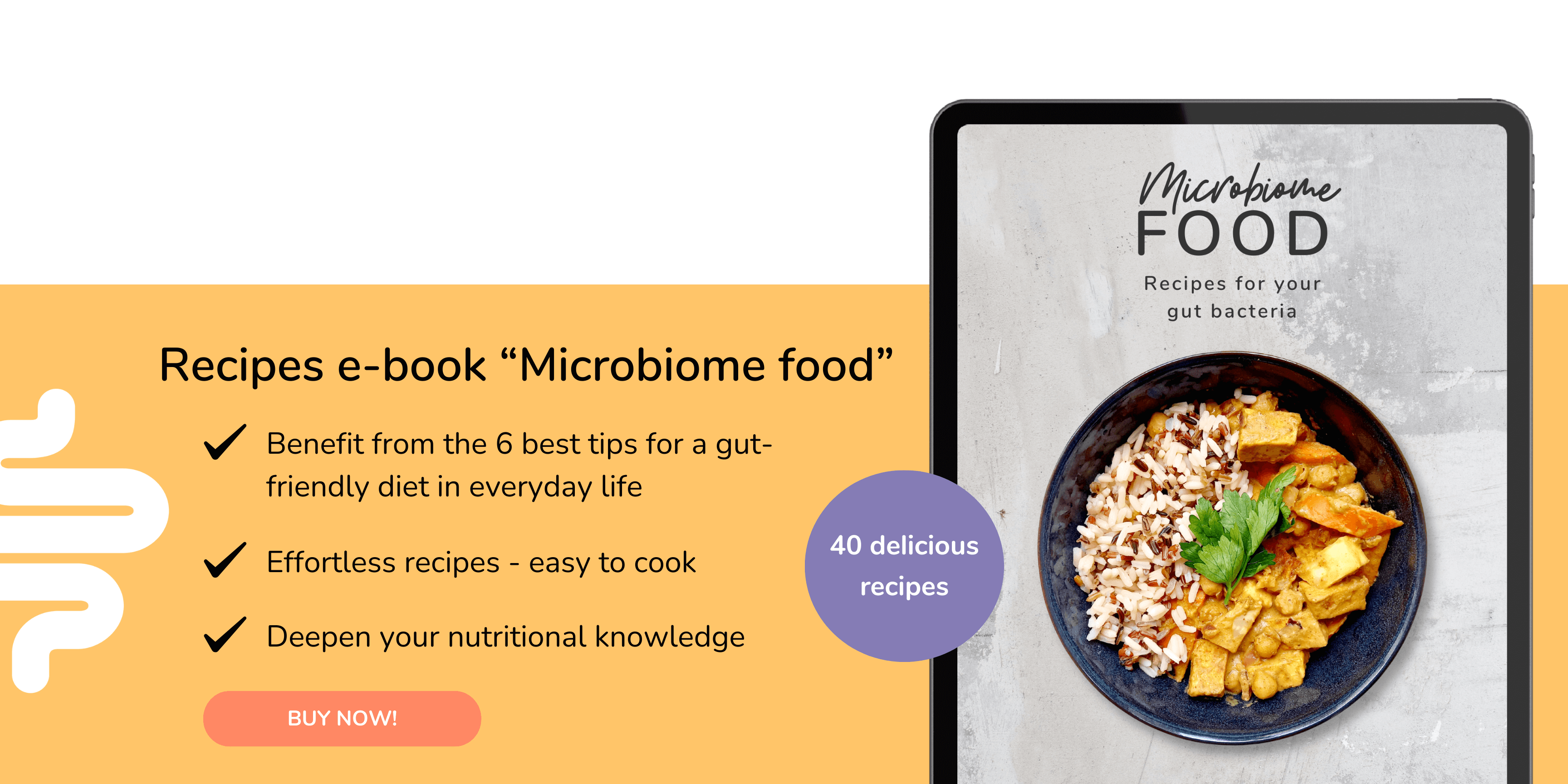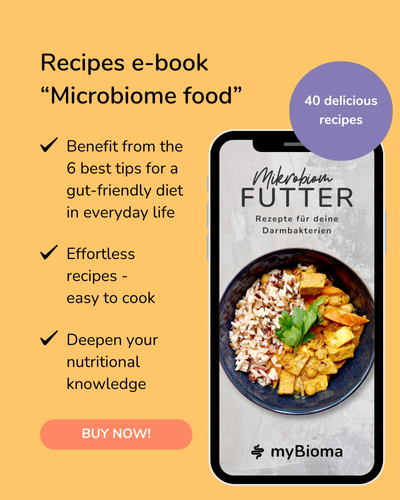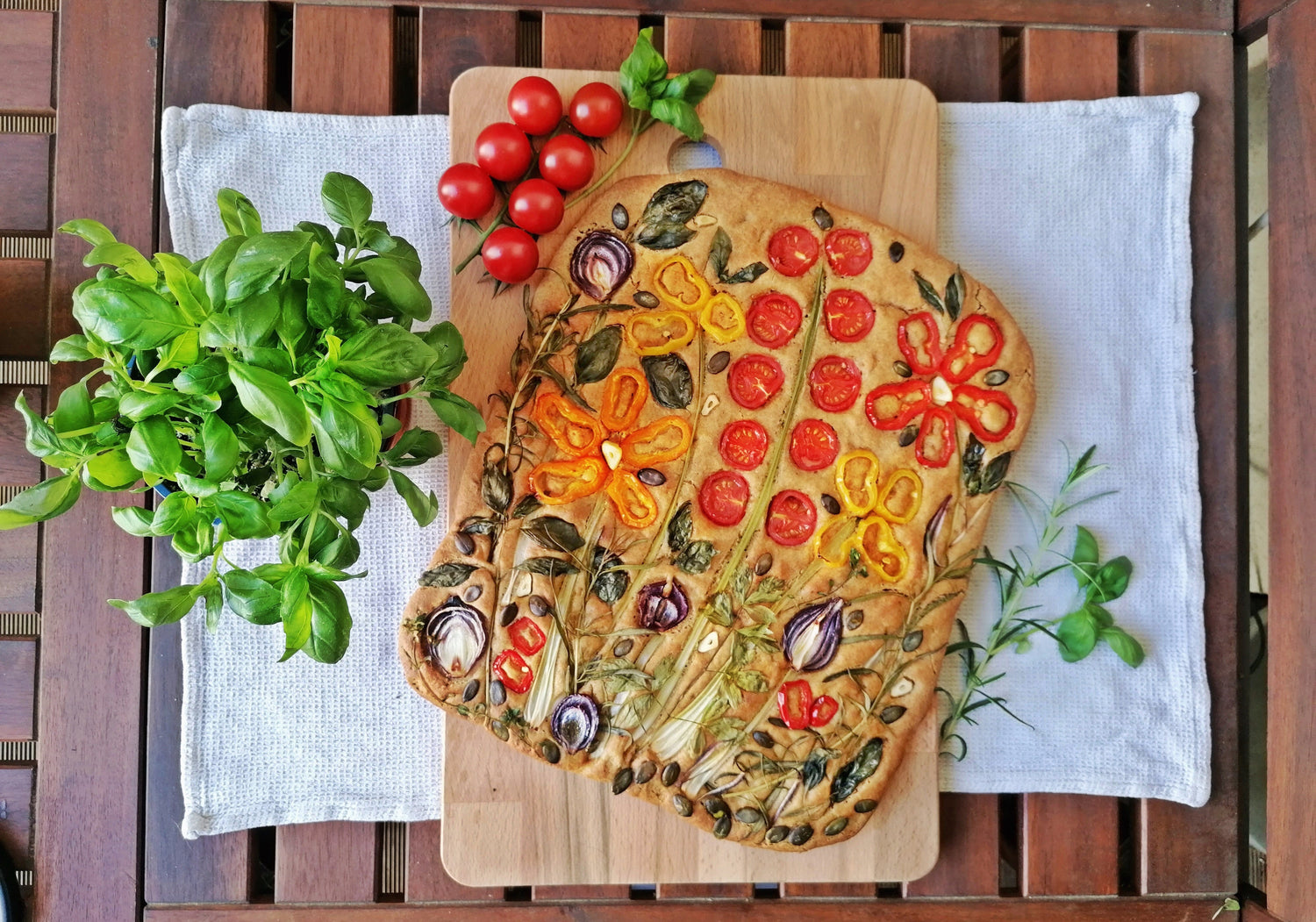Mother’s Day calls for something truly special – like this rhubarb tart made with wholesome buckwheat flour. It’s not just a treat for the senses, but also a gentle way to support your gut health. Rhubarb provides natural acidity and fibre, while nutty buckwheat flour is naturally gluten-free – and offers your microbiome the kind of nourishment it truly enjoys. Whether served as a sweet breakfast surprise, an afternoon delight, or a heartfelt gift, this tart blends indulgence with mindful care.
And if Mother’s Day isn’t a celebration for you – or carries a touch of sadness – perhaps this recipe can still offer a moment of comfort, calm, or even a quiet smile. 🩷
Is gluten-free better for the gut?
More and more people are opting for a gluten-free diet, but is this always the best choice? For people with celiac disease, eliminating gluten is essential, and for those with gluten sensitivity, a significant reduction in gluten-containing grains is also advisable (1). What is often overlooked, however, is that many common gluten-free flours, such as rice or corn flour, are low in valuable nutrients and contain hardly any fibre – making them unconducive to a balanced diet. In the long run, a lack of fibre can even harm your intestinal flora. Many gluten-free convenience products also contain a high amount of additives and preservatives, which may further disrupt the delicate balance of the gut microbiome. That’s why a strictly gluten-free diet is not generally recommended for those without coeliac disease or a diagnosed gluten sensitivity. Those who do eat gluten-free should pay even more attention to choosing fibre-rich, wholesome foods.
Want to dive deeper into the topic of gluten and gluten-free living? We've got a great article for you right here: Gluten sensitivity: symptoms, causes, and tips for a gluten-free diet
Buckwheat is a valuable alternative here. Unlike many other gluten-free flours, it is full of valuable nutrients such as (2):
- High-quality vegetable protein with a balanced amino acid profile
- Resistant starch and plenty of fibre to get your healthy gut bacteria going
- Important vitamins such as A, C, E and almost the complete B vitamin spectrum
- Minerals such as magnesium, calcium, potassium, and phosphorus. While iron, zinc, and manganese are found in smaller quantities, they are highly bioavailable – meaning the body can absorb and utilize them efficiently
Rhubarb and buckwheat – a perfect combination
Rhubarb, which is especially in season in spring, is a true superfood. It contains vitamins C, K, and A, many antioxidants, and fibre that stimulate digestion, prevent constipation, and reduce inflammation. Sennosides have a natural laxative effect, tannins soothe the intestines, and vitamin A protects the skin from premature aging (3). Combined with the nutty flavor of buckwheat, it makes a nutrient-rich tart that's not only gluten-free but also truly beneficial for the body.
Butter – The special taste
This recipe uses butter, which gives the tart a wonderfully tender texture and rich flavor. While butter is often criticized, it's perfectly safe in moderation. Make sure to choose high-quality butter to preserve the best nutrients.
If you prefer a plant-based alternative, you can replace the butter with a plant-based butter alternative, coconut oil, or even nut butter. You can replace the egg in the batter with a flaxseed egg by soaking 1 tablespoon of flaxseed with 2 tablespoons of water for at least 10 minutes and then adding it to the batter. Instead of using eggs in the almond cream, you can combine about 250g of vegan quark with 1-2 tablespoons of cornstarch and mix it into the remaining cream.

The rhubarb tart is a perfect, seasonal spring dessert and ideal for a Mother's Day treat.
Crust ingredients:
- 300 g buckwheat flour
- 50 g coconut blossom sugar
- 1 egg
- 1 pinch of salt
- 150 g cold organic butter (or plant-based alternative)
Ingredients almond cream:
- 100 g almond butter
- 2 eggs (room temperature)
- 100 g almond flour
- 50 g coconut blossom sugar
Additionally:
- 4 rhubarb stalks

Not just a feast for the eyes: This rhubarb tart delights with the perfect balance of sweet and sour flavors, complemented by a rich almond cream.
Preparation
- In a large bowl, combine flour, sugar, and a pinch of salt. Add the cold butter pieces and rub in with your fingertips until a sandy consistency forms.
Add the egg and gently combine the dough with your hands into a smooth, homogenous dough ball—try not to knead it too much. Cover with plastic wrap and refrigerate for at least 30 minutes. - For the almond cream, mix all ingredients with a hand mixer and place in the refrigerator for at least 30 minutes.
- Roll out the dough for the tart base on a sheet of baking paper to about 5mm thick and then place it in the tin. Pierce holes in the base with a fork.
- Now spread the almond cream evenly on top and smooth the surface.
- Wash the rhubarb stalks and trim off the leaves and ends (do not peel). Cut the rhubarb into pieces about 3-4 cm long. Arrange them in a way that creates a nice pattern.
- Bake the tart at 180 degrees Celsius for 35-45 minutes, until the top is golden brown and the rhubarb has softened. Enjoy once cooled!
Happy baking! A nutrient-rich treat that not only tastes good but is also good for your gut—whether on Mother's Day or just because. 🩷
Sugar and the microbiome – is coconut blossom sugar the better choice?
While coconut blossom sugar contains some minerals and has a slightly lower impact on blood sugar than regular table sugar, it's still sugar and shouldn't be consumed in excess. Enjoying something sweet every now and then is perfectly fine and healthy—especially when it's part of an overall balanced lifestyle.
If you're looking for more delicious, gut-friendly recipes, be sure to check out our e-book 'Microbiome Food' – featuring over 40 varied recipes plus practical fermentation guides: Microbiome Food - Recipes for your gut bacteria
References
- Fasano A, Sapone A, Zevallos V, Schuppan D. Nonceliac Gluten Sensitivity. Gastroenterology. May 2015;148(6):1195–204.
- Sofi, SA, Ahmed, N., Farooq, A., Rafiq, S., Zargar, SM, Kamran, F., Dar, TA, Mir, SA, Dar, BN, & Mousavi Khaneghah, A. (2022). Nutritional and bioactive characteristics of buckwheat, and its potential for developing gluten-free products: An updated overview. Food science & nutrition, 11(5), 2256–2276. https://doi.org/10.1002/fsn3.3166
- WebMD (2024). Health Benefits of Rhubarb. Diet & Weight Management. WebMD. https://www.webmd.com/diet/health-benefits-rhubarb







